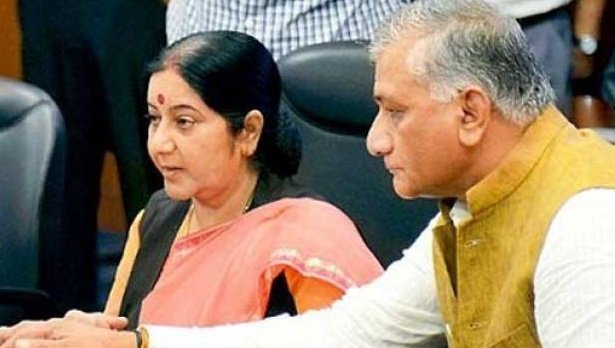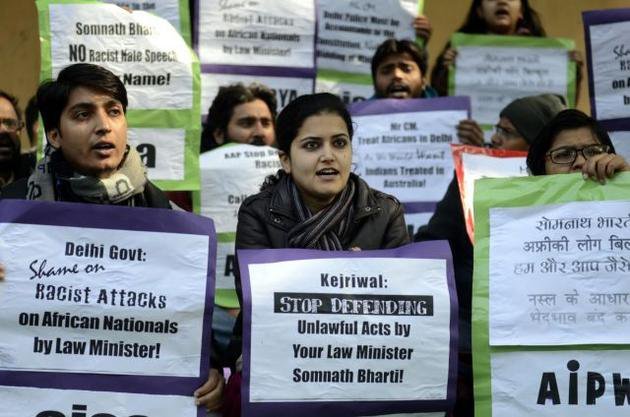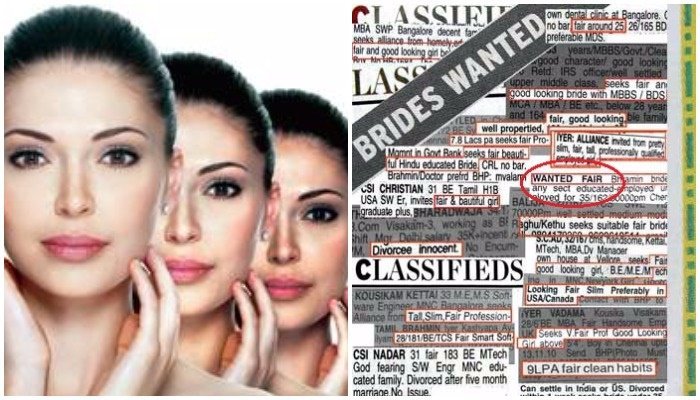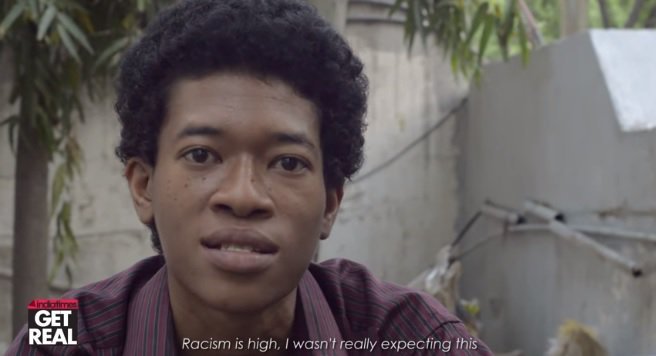Soon after meeting a group of African envoys at her office, external affairs minister Sushma Swaraj – Minister of State V K Singh in tow – talked to the press on Tuesday singing a different tune.

Swaraj, who had until now been announcing sensitisation programmes and repeatedly promising security to African nationals in India, now seemed to fall in line with Singh that the highly condemnable death of the Congolese national Masonda Kitanda Olivier in Delhi’s Vasant Kunj area wasn’t a racist attack.
Her logic? That India is a land of Buddha and Gandhi and we simply can’t be racist.
“India is the land of Gandhi and Buddha. We have fought consistently against racial discrimination. Gandhi himself championed the cause of fighting against this evil. We can never have a racist mindset… it is incumbent upon us to prevent such attacks and we are determined to do so,” Swaraj said.
India can never have a racist mindset, says External Affairs Minister Sushma Swaraj #WhyDenyRacism pic.twitter.com/941MUoe6jP
— TIMES NOW (@TimesNow) May 31, 2016
Coming from a union minister we trust for the safety of both the Indian nationals abroad and foreign nationals in India, the statement seems out of touch with reality. At the same time, I must confess my admiration to her prompt response to the attack and reassurance on a public platform to African students for their safety.
But this denial of racism has left me wondering what to believe, what I experience around me or the rose-tinted reality she wants me to see.
If we aren’t racist, what about the African nationals’ own testimony?
Numerous reports have documented revelations by African nationals about the alarming extent of discrimination and racism they face in India. They struggle with getting rented accommodations and face open ridicule and hate. They have learnt to live with jibes such ‘go back to your country‘ and ‘hubshee‘ and racial profiling of being drug peddlers, criminals and rapists. Why, no less than Delhi minister Somnath Bharti and Goan minister Dilip Parulekar have called Africans a ‘problem in India‘.

If we aren’t racist, why the caste-based discrimination of dark-skinned dalits?
If we don’t invoke the vedas here and just see the reality around us, we can see that much of discrimination to dalits is based on skin colour. Fair-skinned dalits are even accused of faking it and not being real dalits.
If we aren’t racist, why the fairness creams and ‘wanted fair brides’ ads?
We shamelessly advertise and tolerate the endorsing of fairness creams in newspapers, television and on huge billboards. Check out the ‘bride wanted’ section in any matrimonial classified and words like ‘fair girl wanted’ stare hard at you.

If India is a land of Gandhi and Buddha, America is a land of Martin Luther King and Abraham Lincoln. So what does it mean?
These revolutionaries and social reformers spent much of their lives eradicating the ills of racism, slavery, discrimination and violence. They helped and changed many hearts, but the problems persisted before their lifetime and continue till today. They continue in America and in India. The icons showed their society a better way, but we can’t pretend the problems that exist aren’t there.
Racism for many Indians is a western phenomenon and import, but it’s time we own up to our own racial attitudes and behavior towards who we consider inferior.

Swaraj doesn’t have to look too far. Just consider the plight of Northeast Indians in the metropolitan India. Or even the regional stereotypical profiling of South Indians in North India or vice versa.

















